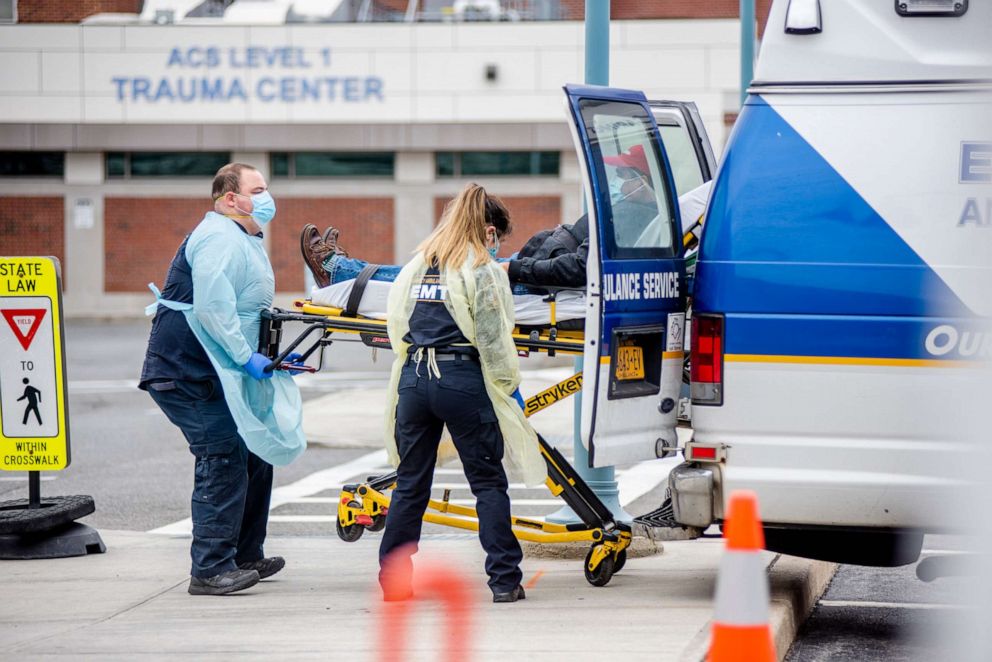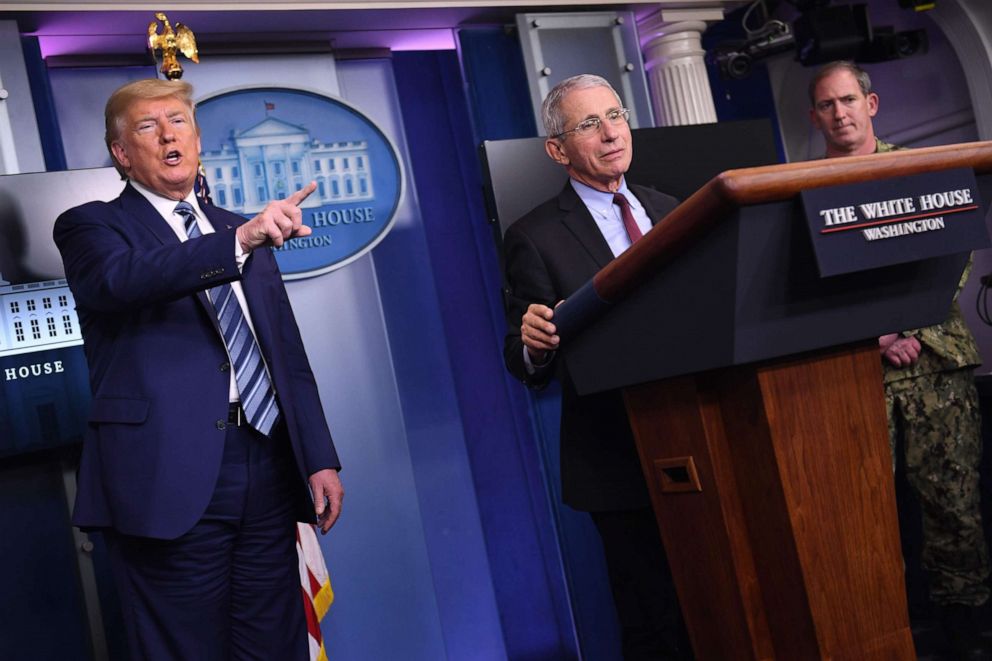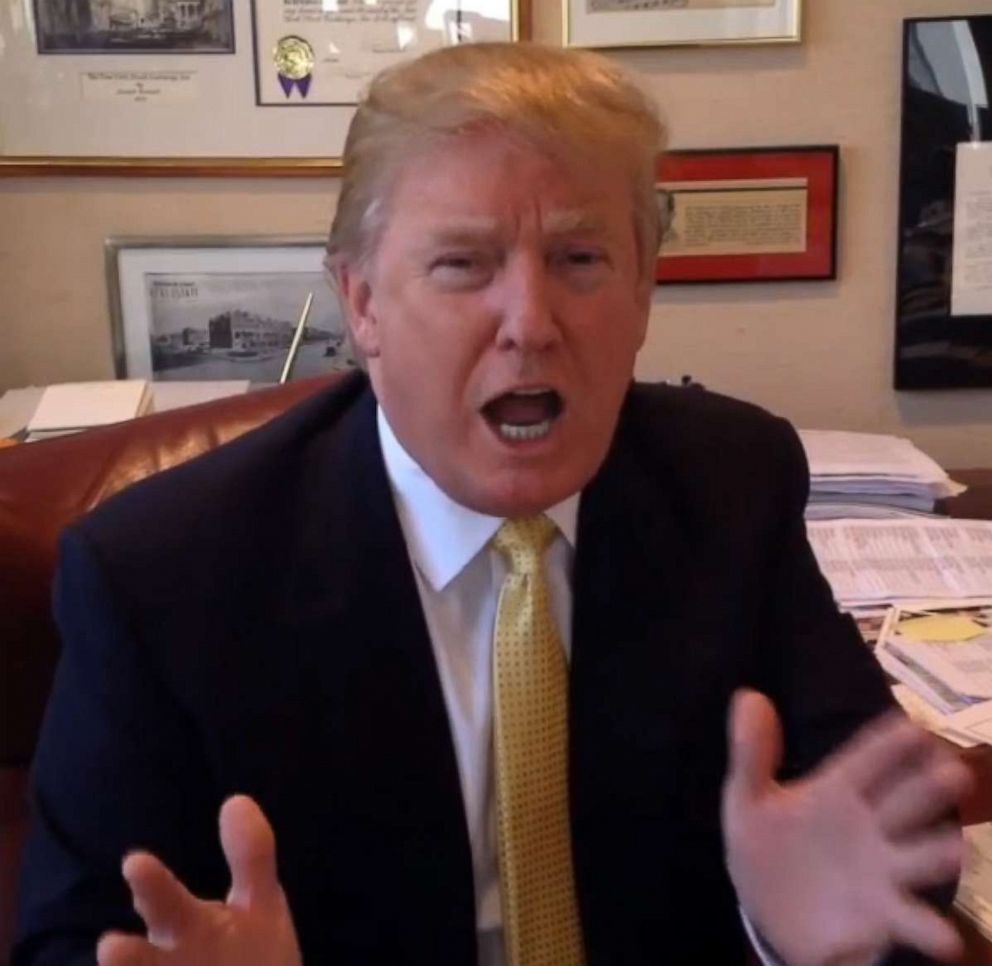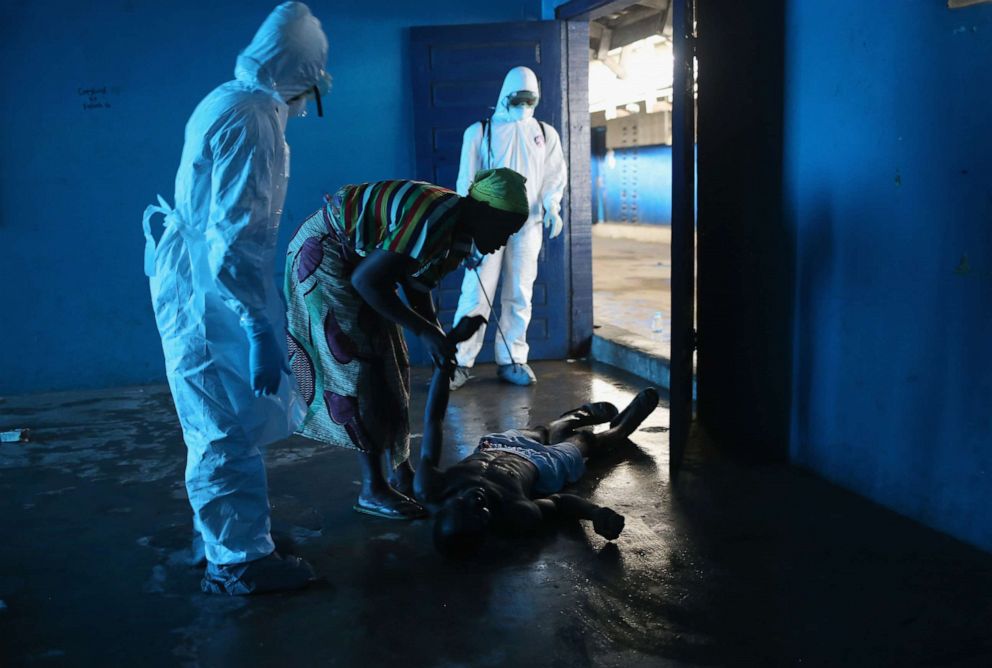Before the White House, Trump called NIH 'terrible,' questioned vaccines
Trump repeatedly weighed in on Obama's response to the Ebola and H1N1 epidemics.
With the coronavirus crisis deepening on his watch, President Donald Trump in recent weeks has promoted a still-unproven malaria drug as a possible "game changer," touted his administration's "unprecedented" moves to fast-track a vaccine, and praised the work of the National Institutes of Health.
But when Barack Obama was still in the White House and facing earlier global health crises, Trump expressed much different views, denouncing NIH as "terrible," claiming vaccines "can be very dangerous," and cautioning against medicines that have yet to be proven safe and effective.
At the time, Trump also suggested that when fighting an epidemic, the federal government's efforts shouldn't be run by a political person answering to the White House – that would be tantamount to "mismanagement" and "duplicity," he said.
There are, however, two things that haven't changed since then: Trump's faith in anecdotes to make consequential decisions, and his inclination to close the U.S. borders when a deadly pathogen starts spreading overseas.
Nevertheless, those earlier views shed further light on the specific challenges – and criticisms – Trump now faces years later, as coronavirus continues to spread inside the U.S. homeland.
A White House spokesman told ABC News, "President Trump's top priority is the health and safety of the American people, and he has unleashed the full power of the federal government to curb the spread of the virus, expand testing capacities, and expedite vaccine development."
From questioning vaccines to heralding 'fastest vaccine development in history'
Trump is now facing pushback for repeatedly using the White House podium to promote the malaria drug hydroxychloroquine as a possible "game changer," even as the most-trusted voice at the White House, Dr. Anthony Fauci from the National Institutes of Health, has urged caution in viewing the drug as a "knockout" solution, noting its potentially dangerous but rare side effects.
On Sunday, Trump wondered, "What do you have to lose?"
"It may work. Then again, it may not work," he added.
But back in April 2009, as the new Obama administration was grappling with the H1N1 "swine flu" epidemic, Trump was much more wary of what he viewed as experimental drugs.

Talking on Fox News specifically about vaccines, he said they "can be very dangerous" and insisted he would never allow his own children to be infused with medicines "that really nobody right now knows if it works with respect to what they're looking at."
Over the years, Trump has pointed to anecdotal reports that claimed vaccines caused autism in children. On the presidential campaign trail in 2015, Trump told the story of a "beautiful child" who "went to have the vaccine, and came back, and a week later got a tremendous fever, got very, very sick, now is autistic."
Doctors and scientists have long dismissed such claims tying vaccines to autism, and the Centers for Disease Control currently states online, "There is no link between vaccines and autism."
Last year, as the country began to see an uptick in measles cases, Trump seemed to soften his stance, saying vaccines were "important." And in recent weeks, amid the coronavirus crisis, he has praised his administration for executing "one of the fastest vaccine development launches in history."
On Monday, Trump noted how important it was to rely on scientific testing to determine whether a vaccine should be used.
"We have to make sure it doesn't have a horrible impact, destroy somebody," he said. "We have to test it for a long period of time."
According to Trump, that's why he's so interested in the hydroxychloroquine drug that he keeps pushing to potentially treat coronavirus.
"I would love to go to a laboratory and spend a couple of years testing something [but] we don't have time," he said. "If it does help, great. If it doesn't help, we gave it a shot."
But Fauci, one of the most prominent faces of Trump's pandemic response, has said there is "no evidence at all that hydroxychloroquine has any effect."
"Anecdotal stories, really based on essentially nothing, have permeated" through a "storm of information out there, or misinformation," Fauci said two weeks ago.
He said hydroxychloroquine is "relatively safe" but can create serious "issues" for certain patients, and since there's no evidence that it has any effect, the drug needs to be tested before drawing conclusions about its worthiness.
Clinical trials in the United States have already begun, and scientists in China claim the drug helped a small sample of patients who were experiencing moderate symptoms.
The Food and Drug Administration is now allowing doctors to prescribe hydroxychloroquine to coronavirus patients after balancing "the risks and benefits," the agency's commissioner recently said.

From ‘NIH is terrible' to ‘some of the greatest doctors'
Trump has had to rely on the expertise of Fauci, the nation's top doctor for infectious diseases, and other experienced medical professionals to help him navigate the growing coronavirus crisis.
Last month, Trump tweeted a message of thanks to Fauci and his NIH colleagues, saying, "The National Institutes of Health is home to some of the greatest doctors, scientists, and researchers in the world."
But during a radio interview in 2015, Trump offered a starkly different assessment: "I hear so much about the NIH, and it's terrible."
In the Oct. 2015 interview, conservative radio host Michael Savage urged Trump to appoint him as NIH director should Trump win the presidency. Savage claimed there is "such corruption right now in science" that the country lacks "real science and real medicine."
Trump called Savage's comments "great."
Fauci became director of the National Institute of Allergy and Infectious Diseases in 1984. Dr. Francis Collins, the director of NIH more broadly, took office in 2009 and has remained there since.
Should the White House run the response?
Trump has also seemed to reverse his views on whether the White House should run point for an epidemic.
On Feb. 26, as the White House began to recognize the seriousness of the coronavirus pandemic, Trump announced that he had selected Vice President Mike Pence to be "in charge" of the federal government's efforts.
"And Mike will report back to me," Trump added.
The move received substantial support, and biodefense experts had long said that when a pandemic hits, the vice president is uniquely qualified to oversee and organize the federal government's wide-ranging response.

But in October 2014, when the Obama administration appointed a "czar" to handle the response to the Africa-borne Ebola virus, Trump denounced the move as "terrible" because the effort would be overseen by the White House.
"The new Ebola czar will report to the WH & NSA adviser. More mismanagement & duplicity with CDC," Trump tweeted, referring to the White House, the national security adviser, and the Centers for Disease Control.
In another tweet, he criticized the new "czar" for having "zero experience in the medical area and zero experience in infectious disease control."
‘Stop all flights'
At the time that Ebola was beginning to spread to new parts of the world, Trump was outspoken in repeatedly calling for the Obama administration to block foreigners – and even American aid workers overseas – from traveling to the United States.
"The U.S. cannot allow EBOLA infected people back. People that go to far away places to help out are great - but must suffer the consequences!" he tweeted in April 2014.
Four months later, he insisted the Obama administration needed to "act fast," tweeting, "The U.S. must immediately stop all flights from EBOLA infected countries or the plague will start and spread inside our ‘borders.'"

One of the government officials publicly opposing such a move at the time was Fauci, who had already take on the position at NIH that he still holds.
"Absolutely not," Fauci told Fox News at the time when asked whether the U.S. should suspend flights from the infected areas. "When you start closing off countries like that, there's a real danger of making things worse. You isolate them. You can cause unrest in the country. It's conceivable that governments could fall if you isolate them completely."
At the time, Trump called Fauci's assessment "ridiculous."
Ebola was concentrated in largely developing countries, and it was a vastly different and less infectious disease than coronavirus.
From 2014 to 2016, a total of 11 people were treated for Ebola in the United States. In recent weeks, nearly 350,000 Americans have been diagnosed with coronavirus and more than 10,000 have died.
Under the threat of coronavirus, Fauci has strongly supported the Trump administration's decision to suspend commercial flights to and from the United States. And Fauci has even said the travel bans should remain in place long after the coronavirus begins to recede inside the country.




